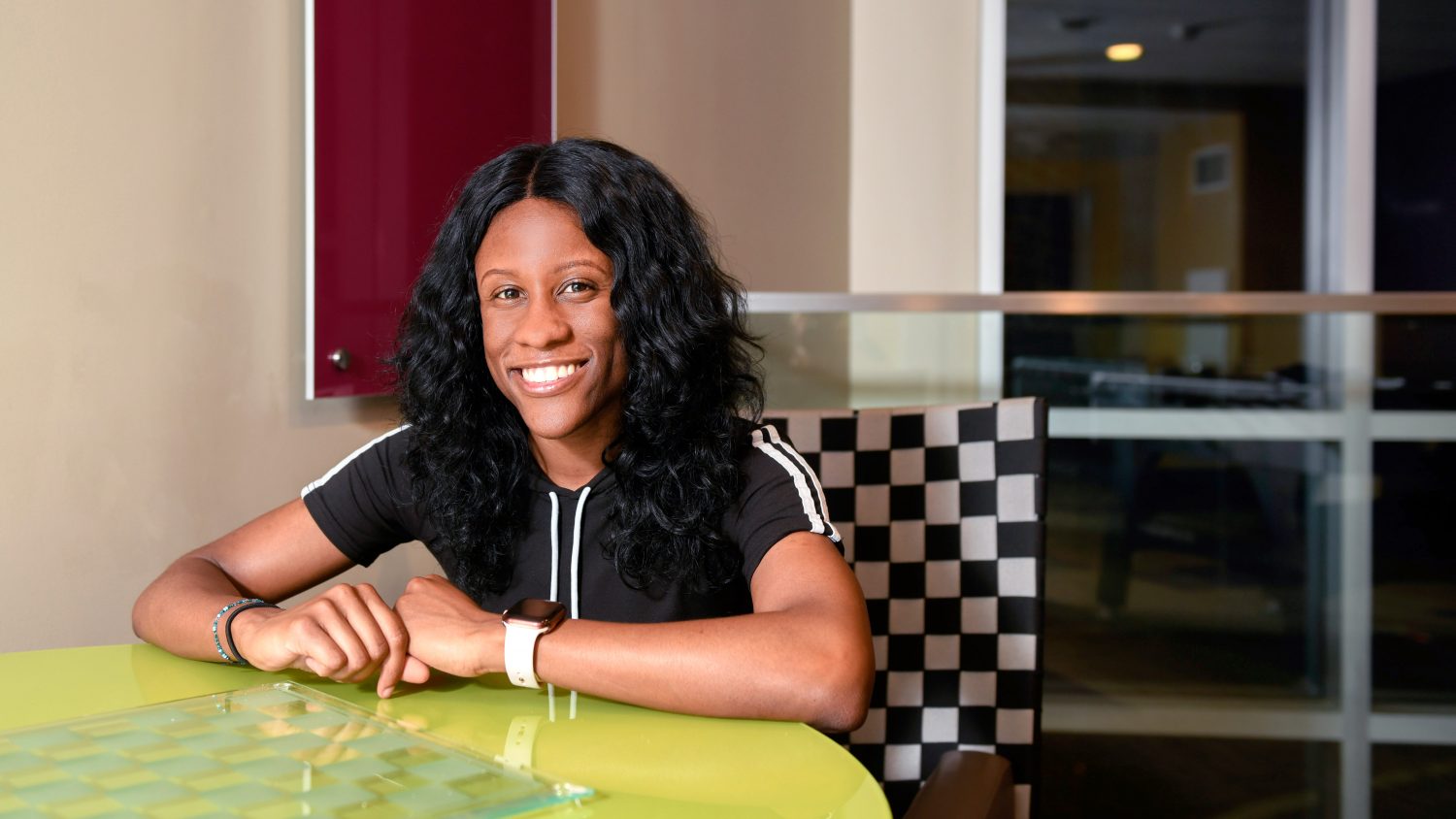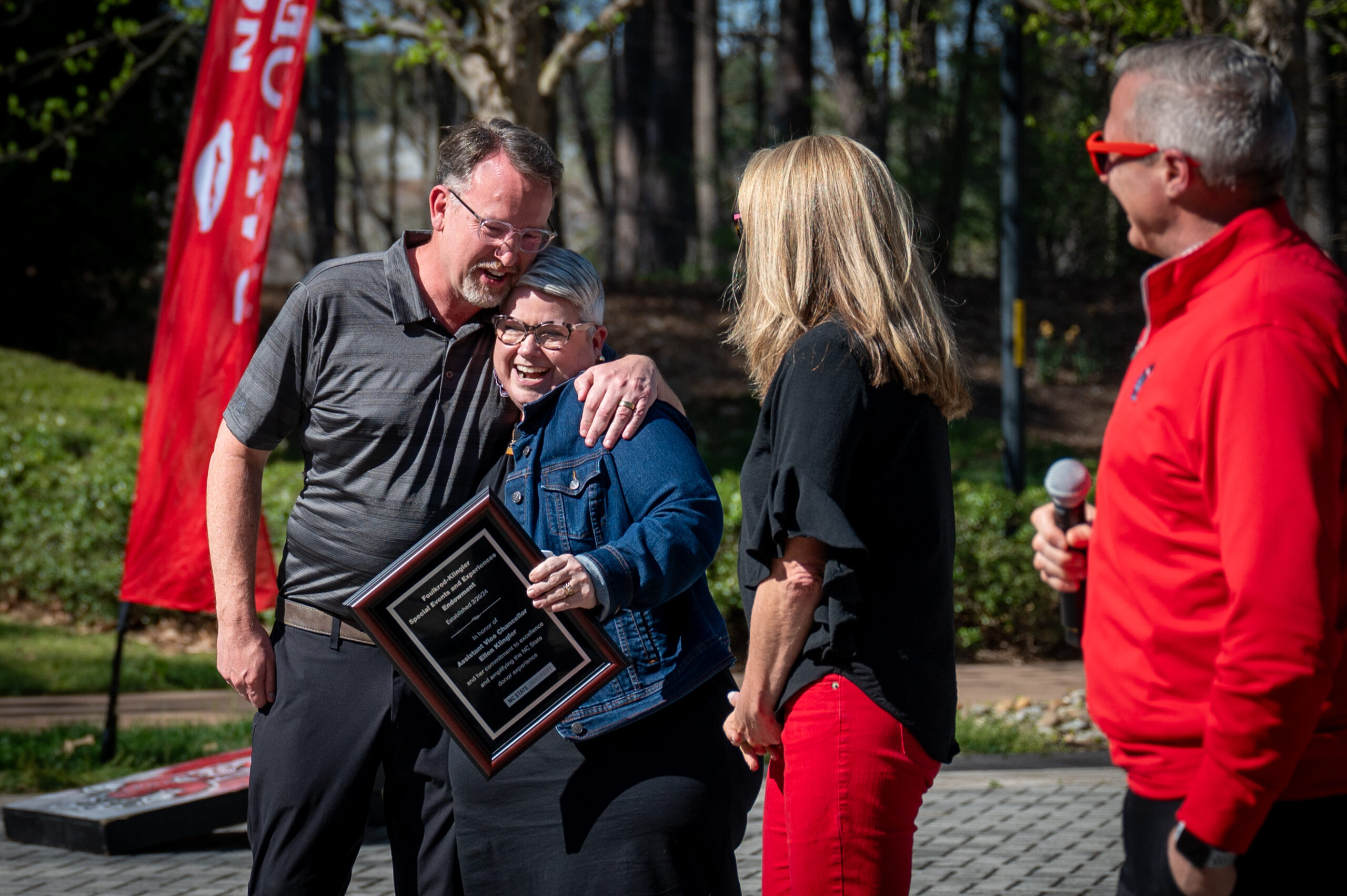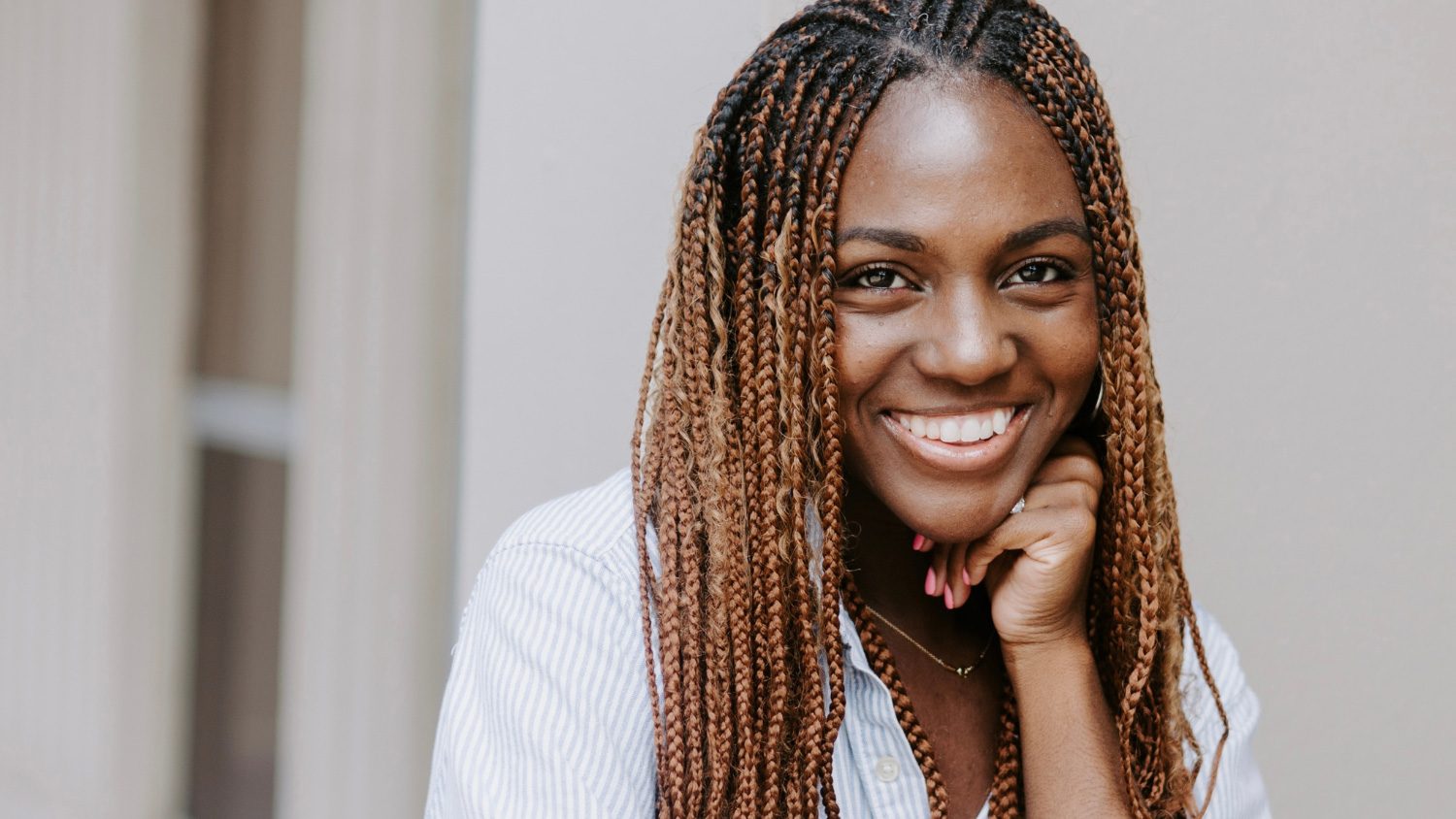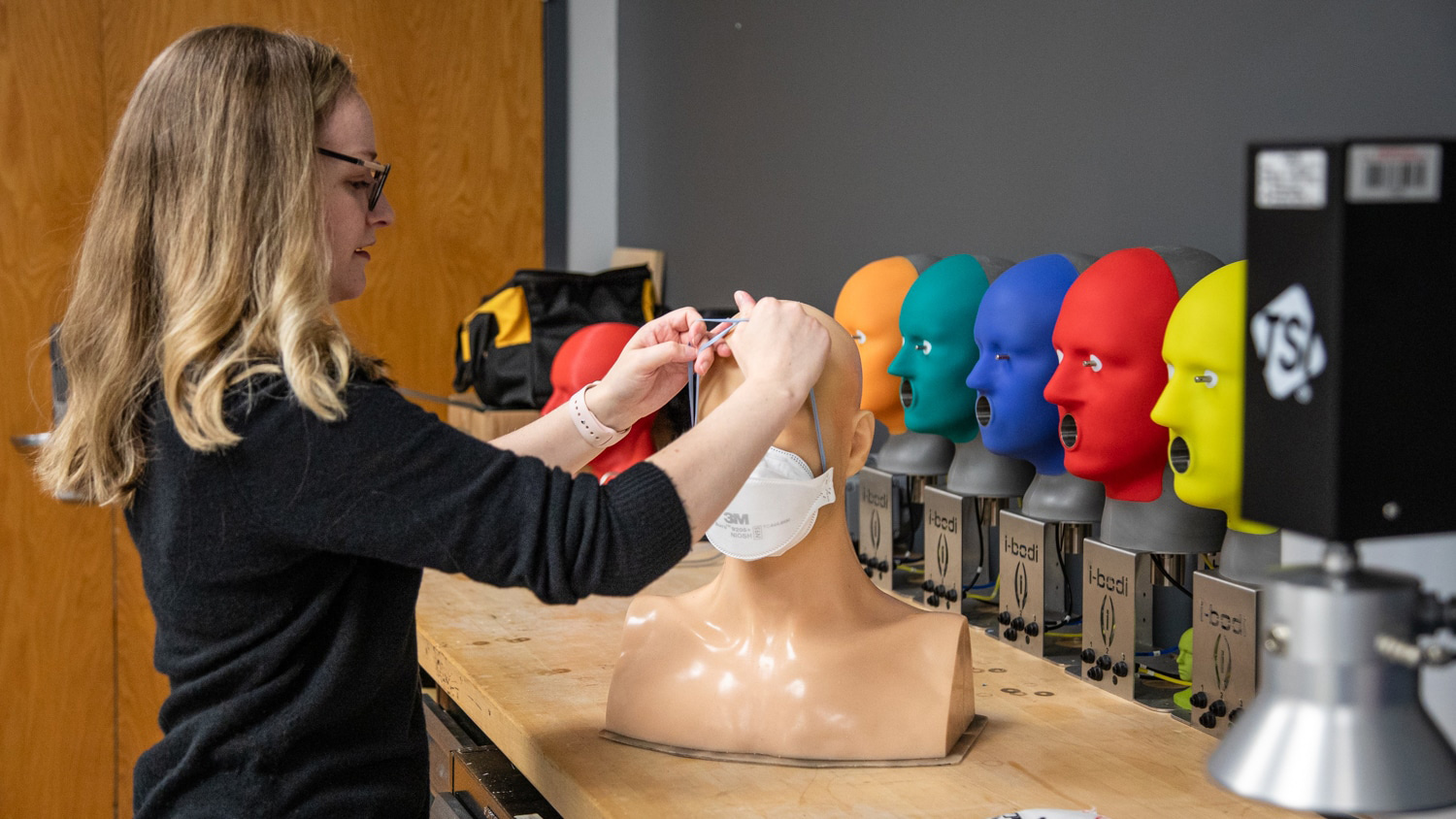A ‘Big Red Letter’ Changed Everything

Choosing between colleges is no easy task. There are hundreds of questions, some without definitive answers, and there is plenty of pressure.
Is the campus too close to home or too far away? Do the academic programs fit my interests? Can I afford tuition? Will that school be the right fit for me?
NC State senior Dorcas Mabiala remembers the stress of that debate all too well, especially the final days of her decision-making process in the spring of 2015. She weighed the pros and cons with her parents, hoping to find the right answers and figure out what life would look like after she graduated from Raleigh’s Wakefield High School.
“We were trying to decide between the best of the worst,” as far as expenses, she said, recalling the discussions she had with her parents. Mabiala had been accepted to several colleges, but that fact didn’t make her financial situation any easier.
“My options were limited because I was the first person in my family to go to college in the United States. We moved from the Congo when I was 3 years old and my parents were educated there, so I didn’t have the guidance some of my peers had from their families,” she said. “All of the schools were expensive, and on top of that, none of them were offering me much in terms of financial assistance.”
With the decision deadline looming, an important piece of mail arrived at Mabiala’s home.
“It was a big, red letter,” she said. “My parents didn’t even know I applied to NC State. I did my NC State application last minute, and the day I was deciding, I had mail from NC State. I opened it up, and it started with ‘Congratulations!’ I thought it was great because it was a local school and it was more affordable, and then I looked at the financial aid part and I read the letter saying I had received the Pack Promise scholarship.”
What Mabiala didn’t know then was how much that letter would change her path.
Pack Promise is one of several ways that NC State tries to make college more accessible for North Carolina residents from lower-income backgrounds. The program ensures that those who qualify receive a financial aid package that meets 100% of their demonstrated need. Aid packages typically include a combination of scholarships and grants, required work-study and loans of up to $3,500 per year.
“The amazing part is that NC State ended up being ideal. I made the right decision, and I’ll be leaving here with so much gained,” Mabiala said. “Applying to schools was a headache, so it was such a relief to know that one school wanted me and wanted to support me.”
Since arriving on campus, Mabiala said she has seen the support take many forms. During her first year, she made an invaluable connection with an adviser.
“I was a freshman in exploratory studies, and the relationship I built with my adviser was helpful as I tried to navigate my way through school and figure out some goals. It’s nice to know that people care about your academic journey and your mental state, and even things like whether or not you’re exposed to key areas of campus,” she said.
Program support also made things easier for her parents, who had no experience with the college system in the United States.
“My parents knew they didn’t have to worry about me. I had a parent at school, basically, with the help of my adviser,” she said. “It was a great time of exploration for me, and it was very helpful.”
Join Us
Like many first-generation NC State students, Mabiala has taken part in TRIO programs, which help students overcome class, social and cultural barriers to education. She also has been involved in the Albright Entrepreneurs Village and University Tutorial Center. After deciding to study nutrition science in the College of Agriculture and Life Sciences, Mabiala pursued undergraduate research opportunities.
Before her final semester at NC State this fall, she worked as a research intern for the Centers for Disease Control and Prevention in Atlanta. Up next? Graduate school, although she’s still in the decision-making phase.
“I plan to go to graduate school for a master’s in public health, and I’ll be going on college tours with TRIO soon,” she said. “I’d like to eventually get my Ph.D. in public health.”
Looking back, Mabiala credits Pack Promise and TRIO for helping her take full advantage of her time at NC State.
“Because of Pack Promise, not only was I able to be a student here, but I was able to be a student who was financially stable,” she said. “It was such a relief, and it took so much burden off of my parents. Pack Promise made my life easier, and I hope I can give back one day to thank those who helped me.”
This story is part of an ongoing series about extraordinary opportunity at NC State. Learn more about how we’re working to empower more students from every family background and economic situation to earn an NC State degree.
- Categories:


